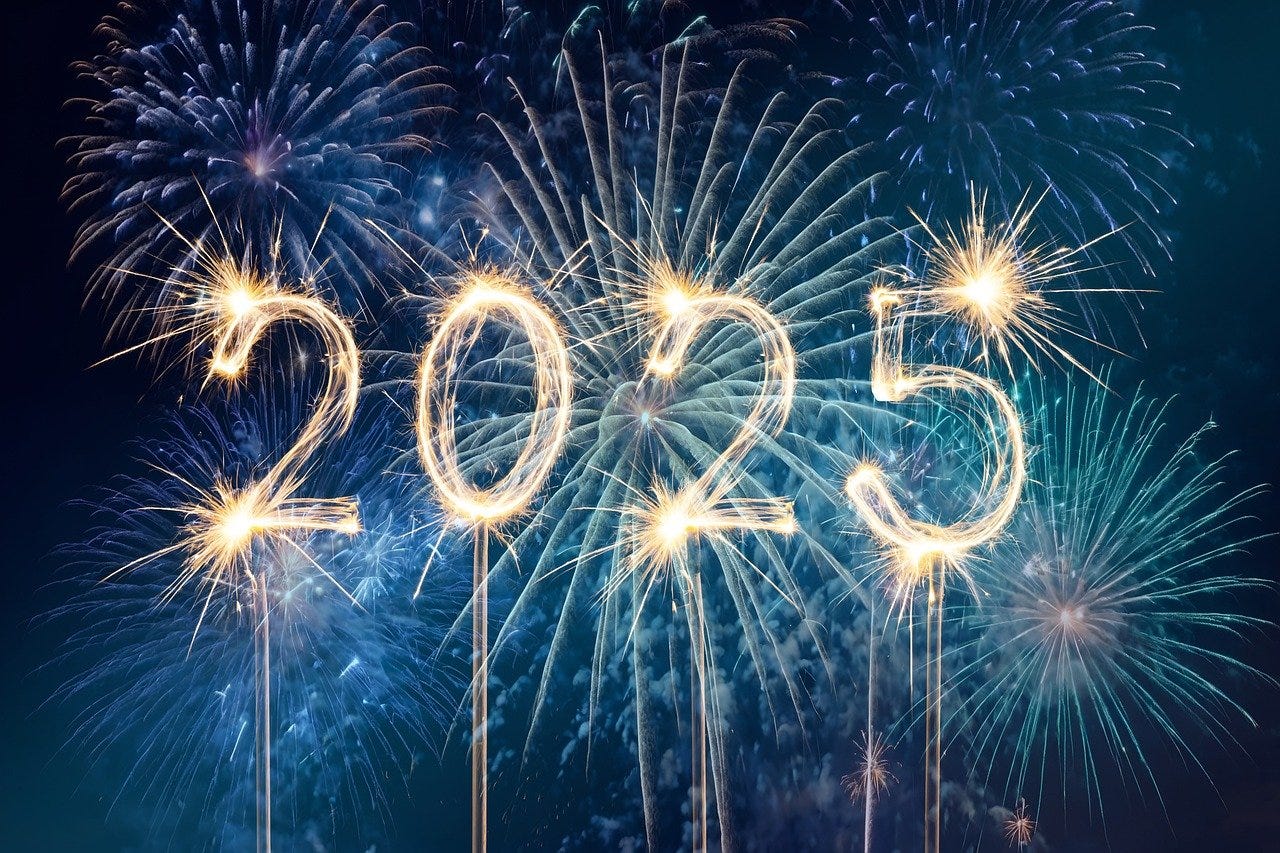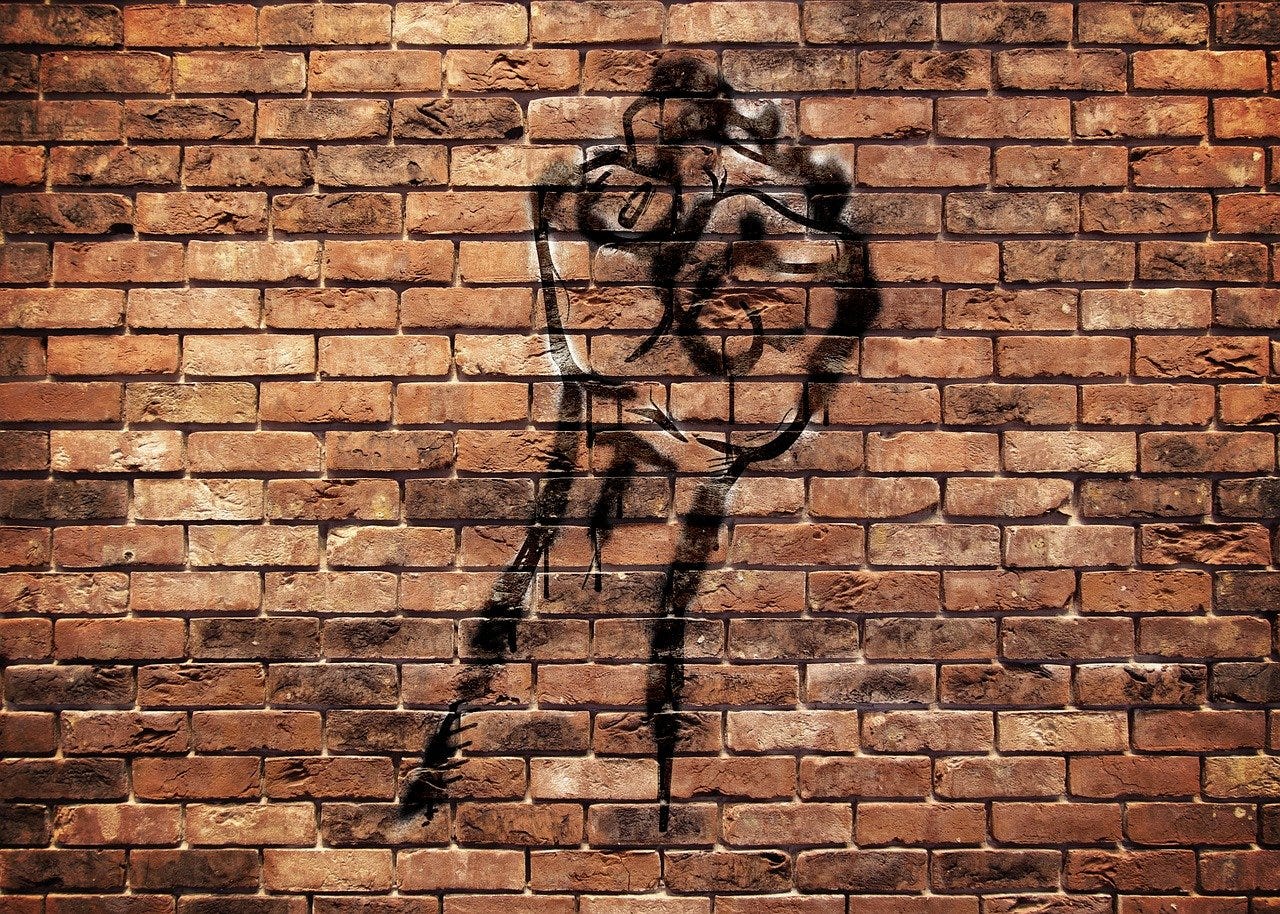How to Truly Embrace the New
Many people are saying that 2024 was a year unlike any other, and that this is not a good thing. When we encounter new things, how should we respond?
2024 will go down in my life as one of the most tumultuous years I’ve lived through. The underlying events began in my professional life but didn’t end there. In April, I learned that my full-time Visiting Assistant Professor position at Sam Houston State University was ending (I was expecting to transition to a Lecturer). Though my department wished it were otherwise, the administration’s decision was final. I decided to find employment elsewhere, maintaining my relationship with my SHSU department as a part-time adjunct. High school teaching seemed the next best choice, so my summer project was to become certified as a social studies teacher for grades 7-12. I am now provisionally certified, but no full-time jobs were available when I became so in August. Currently, I am a substitute for several school districts, waiting for the job market to pick up in March to apply for full-time positions.
My career changes radically affected my personal life, mostly for the better. While I mourned the loss of my community at SHSU, not needing to commute to Huntsville, TX every day enabled me to move in with my girlfriend. Given how long I’d been living by myself in apartments, I found the transition to family life and home ownership both novel and enjoyable. Now seven months in, I am only sorry I didn’t do it sooner. Moreover, given my loss of SHSU’s health care plan and the poor plans substitute teachers get, my girlfriend and I moved our legal wedding ceremony forward so that I could join her plan (our “family and friends” wedding ceremony will continue as intended in March). My wife and my lifestyles harmonize easily. The only challenge has been external, as we come from very different backgrounds, a fact revealed by our attempts to connect our families. In the long term, I am not worried.
All this occurred amidst an undeniably turbulent year for our country and the world. I assume our readers are familiar with the highlights at least, so I won’t recount them. Yet recognizing this context brings me to my reason for recounting my unforgettable year. The signposts of my life changed radically from January to December, mostly in ways I didn’t expect. Our society has seen significant changes over the past year too. While I don’t know how different our sociopolitical signposts will be at the end of 2025, it is indisputable that people see radical changes on the horizon.
As we begin the New Year, I want to reflect on what it means to encounter newness, especially when it is unexpected (and can you really expect pure newness?). As we prepare ourselves for a year with the potential to lead us to surprising, potentially disturbing places, we should consider what it means to embrace the New.
Newness as a concept has been associated with change, becoming, rupture, growth, transcendence, destruction, difference, and more. Depending on the philosophy, it resists categories, refuses understanding, or exists in a place humans can’t directly access. You see it in Kant’s noumenal realm, Hegel’s antithesis, Marx’s revolution, Nietzsche’s willing, Kierkegaard’s leap into faith, Heidegger’s Destruktion, and many more theories. While this provides a sense of how pervasive the question of the New is, a thorough analysis of it goes beyond this article’s purpose. Additionally, many would say—myself included—that any definitive account of the New destroys your ability to see it.
Where thinkers agree is that reconciling oneself to the New is a process, not an event. The various ontologies of events all distinguish an encounter with an event from an embrace of the New. While all newness arguably requires events, the New and events are not identical, and coming to terms with the New requires a different outlook than the one we use when encountering events. The new situations I encountered in 2024 were accompanied by a flood of differing emotions and perspectives, and these consequent states were not the same for each antecedent break from the past. Rarely have I found that the New in my life—whether it be a state of affairs, a perspective, a relationship, or something else—is encountered or judged as only one thing. On more than one occasion last year I was unsure if the step I had just taken was good, bad, progressive, regressive, healthy, harmful, a mix of those traits, or none of them. The New I encountered was always a mixed experience. This view is not unique to me. APA Blog writers explore the experience of becoming and its concomitant emotions using concepts like endlessness and infinity. Embracing these concepts legitimates the mixed experience of the New by emphasizing the experience of the New over any final verdict.
Yet this description of the New as unlimited—in the sense of being unpredictable and requiring us to have an open attitude—doesn’t address what many desire: an outlook that helps us prepare ourselves for the unpreparable. After all, change that is New is both radically liberating and profoundly destabilizing. It is understandable, though not reasonable, to react with a desire to hold things in place, as though the New is a fleeting instance we can reverse at will. While holding on to things you care about makes weathering the change easier, embracing a Platonic world composed of your preferred Forms is hopeless. The New never disappears completely. Recognizing this fact for me meant never regretting my new settings, but still finding relationships to the philosophy world (through the Blog, among other places) and my pre-marriage life (by maintaining hobbies like board games).
I found the “amor fati” mantra of the Stoics and the “radical acceptance” attitude of Buddhism helpful. Both recommend embracing whatever happens, even if you don’t fully understand it or feel able to address it. The New—even when it is exciting and joyful—is never fully understood or comfortable. We go into the New never knowing who we will be or where we will end up when we return to a sense of constancy. This openness is why philosophers embrace spaces that cultivate the New: they hope that doing so will overcome the problems of the past. In the past year of work and unpredictable becoming, I never gave way to despair. I believed in the possibilities of the New while accepting my fate no matter what. The New became a challenge to be welcomed.
Can we take this view as we venture into 2025? I know I will try, relying as I do on the support of my friends and family. I’m sure others will do the same. Yet many in society embrace fixed meanings, and this group often increases when our society comes together (sadly, I think we’re all guilty of this at times). Already the fights of 2025 have begun, with trenches dug and weapons prepared. This is not disappointing per se, as advocacy and democracy go hand in hand. The public sphere is a crowded space where people are constantly at odds in their haste to be heard, as democratic theorists well know.
Rather, I encourage us all to remember that, even as we debate immigration, inflation, war, imperialism, jobs, racism, sexism, and the other issues of our time, we remember that we do so in part as a way of embracing the New. These debates are ultimately means to larger projects such as democracy and transformation. Others work to create happiness, virtue, peace, and love. Yet these goals require us to embrace the New as a goal.
With fascination, acceptance, love of fate, and hope in my heart, I await all the newness 2025 will bring into our lives.
More from the APA
From the Archives: The Aesthetics of Perfection: The Value of Culinary Achievement in The Menu
As I write this in December 2024, the movie Wicked is in theatres. I saw it yesterday and was amazed. I didn’t see the show or read the book beforehand, so the plot was new to me (though several songs were familiar). As someone who studies social-political movements, I found the narrative about persecuting animals to be compelling. I’m sure philosophers will explore the philosophy of the movie in the near future, especially since a main character tells his friends to “learn to live the unexamined life” (a position he reverses by the end of the film).
The article above explores The Menu, a horror movie about a perfectionist Chef and people from the food industry. While Wicked and The Menu are very different, both explore the desire to become free from society and how doing so can make you either become or appear evil. I hope Elphaba doesn’t go the way of the Chef in The Menu in part two of Wicked by seeking to control the people of Oz the way the Chef controls his patrons.
What We’re Watching: The movie I saw most recently is, of course, Wicked. But for this section, I want to highlight the film His Three Daughters, which I found unexpectedly good. It revolves around three women who are all daughters of a man on his deathbed. The daughters do not get along and have very different personalities. They each see traits in the others that they find offensive or frustrating. The film does a good job bringing the viewer’s attention to those traits without requiring the viewer to judge them. As the sisters reach a breaking point, the movie reveals how the judgments the sisters were making were unjustified. The truths they learn about each other pave the way for reconciliation with each other so that, ultimately, they can support each other as they say goodbye to their father.
News Story of the Month: I have noticed that autism has become more prominent in TV shows and movies. This article discusses how, even as that is a net positive, it gives people a skewed picture. The autistic individuals in shows like Extraordinary Attorney Woo and The Good Doctor are high functioning. While the characters exhibit unusual character traits, they don’t self-harm, yell, or struggle with language. Those familiar with autism (and I am) know such traits can be common. Of course, TV shows are for entertainment, and it is probably challenging to depict low-functioning autistic individuals in an entertaining way. However, I hope people are trying, as the autism community deserves a society that accurately understands what the condition is.







